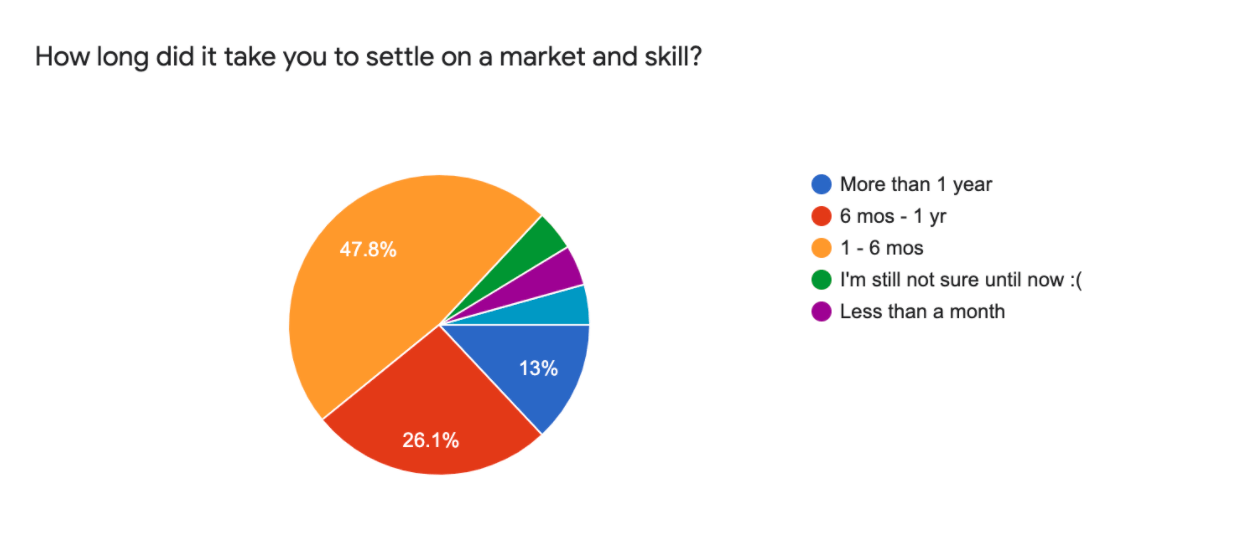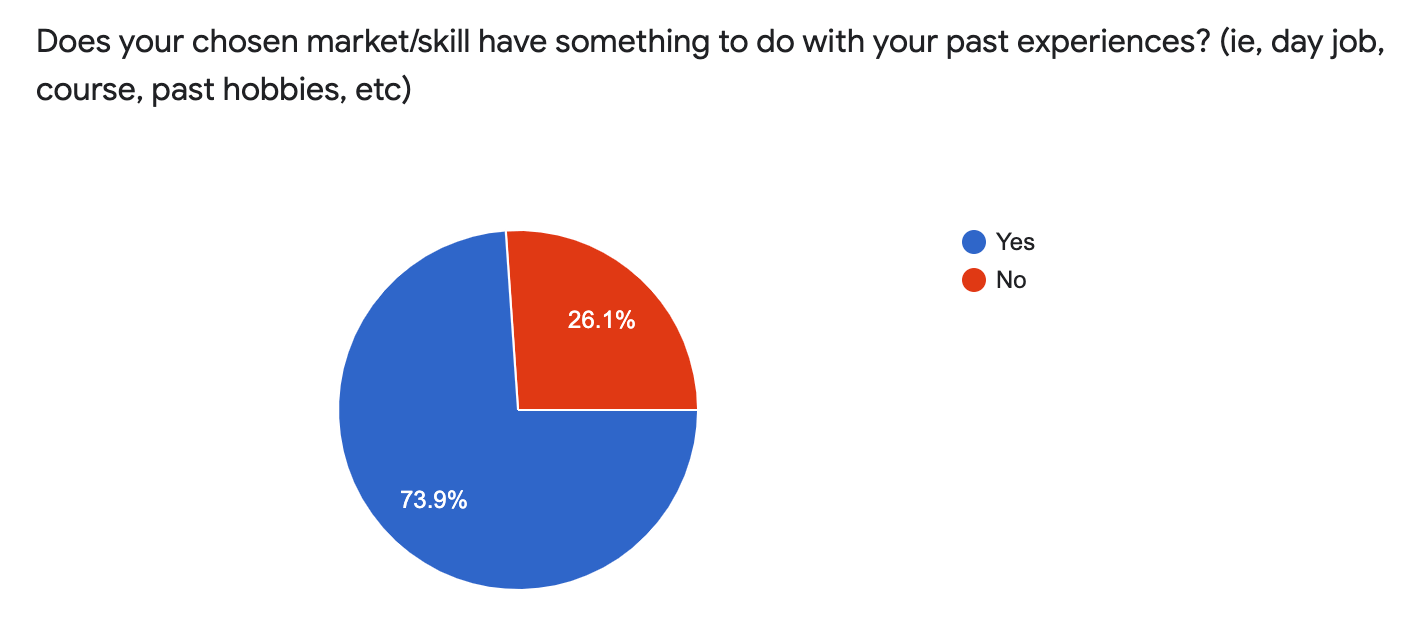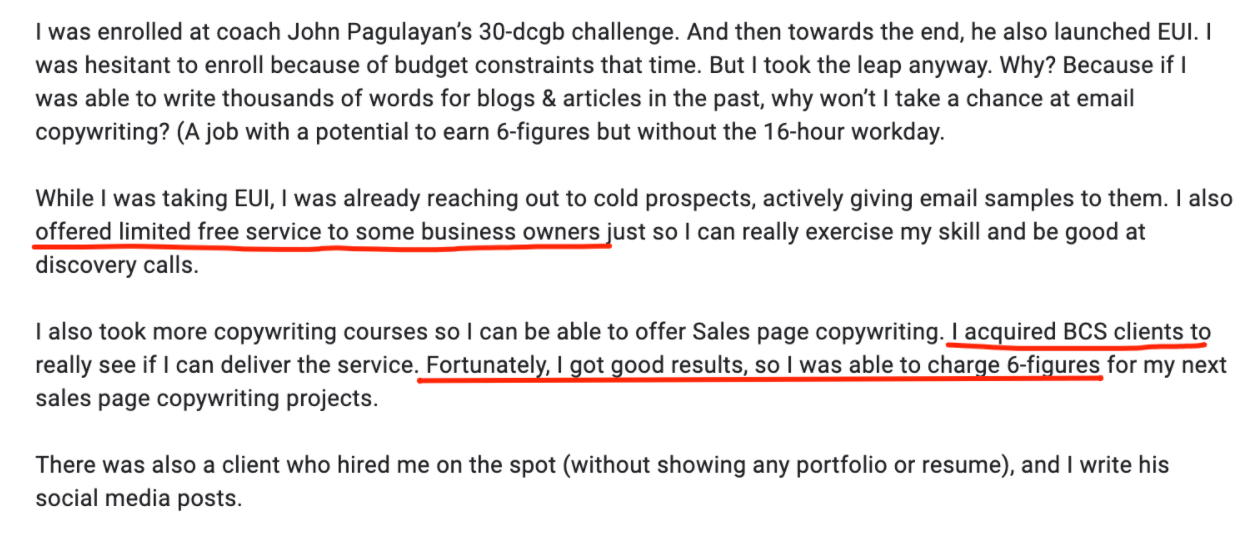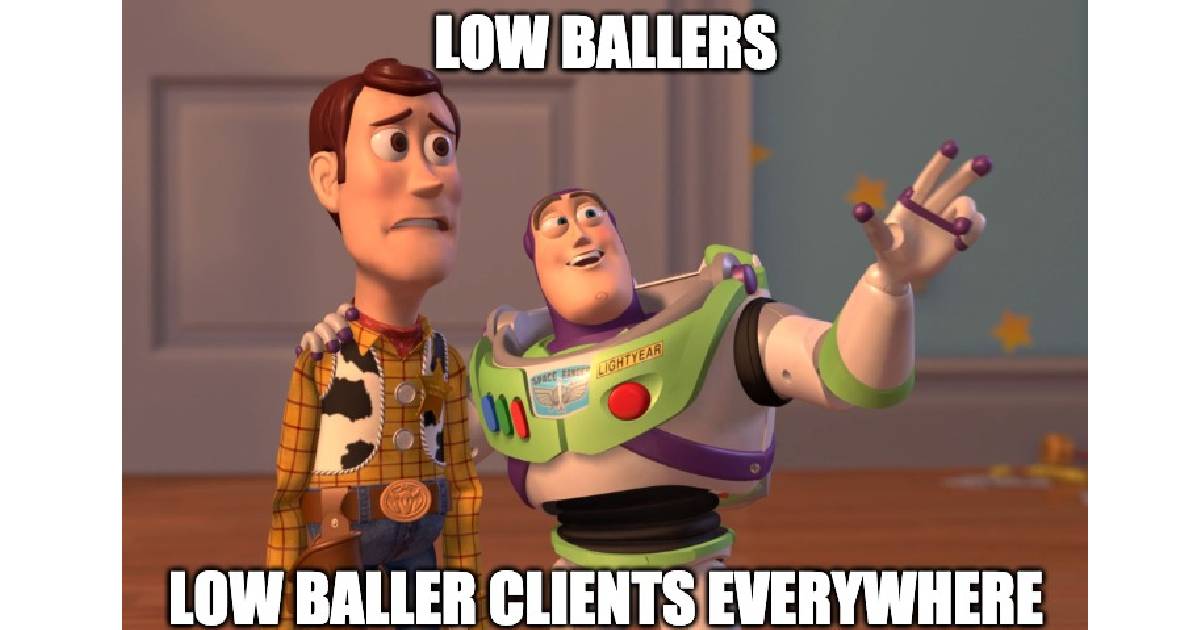“I’m confused… What skill do I offer? What market should I serve?”
Do you find yourself asking these questions?
If you do, then that’s okay.
It’s completely normal to feel this way especially if you’re in the early stages of your freelancing business.
Allow yourself to feel the confusion…
And at the same time, set a specific deadline to avoid dwelling on it too much.
To help you finally decide on a market and skill, we’ve put together the top 5 strategies you can try right now to end this phase.
How did the other freelancers deal with it?
When we surveyed some of the successful freelancers inside the TRIBE, almost 50% of them said it took them 1-6 months to settle on a particular market and skill.
A quarter of them said it’s only after 6 months to a year until they’ve discovered it.
And a little over 10% said it took them more than a year to figure it out.
Then there are a lucky few who knew what to pursue in less than a month.
We wanted to identify these factors so YOU can belong to the latter group: the ones who knew what to do in their freelancing career in just less than a month of analysis.
We uncovered what these are…
…those series of events and realizations which led up to that elusive “AHA” moment that makes freelancers say,
“This is really it!
I was BORN to serve (insert market here) by doing (insert skill here).”
Why is this important?
Because once you get this “market and skill” combo right, you can get your 6 or even 7-figure months.
This is what we’re going to reveal in this post…
Here are the common troubleshooting ideas that freelancers did to finally discover their market and skill.
What to do if you’re stuck in picking out a market and freelancing skill
- Use what you already know to your advantage
- Do an elimination
- Look for free references/forums
- Collaborate with others within your field
- Find a Coach
Let’s dive deeper into each of them.
Use what you already know to your advantage
Our research has proven it.
Almost 75% of freelancers pursue skills related to what they’ve done in the past—day jobs, college degrees, or even past hobbies.
Most freelancers who are successful in their freelancing careers share this one secret: Earning from what they’re already good at.
Been creating designs as a side hustle when you were still in college? Time to make that skill official—be a graphic designer.
Got a degree in English? Earn from writing blogs, academic papers, and whitepapers.
Had a 10-year experience in the hardware industry? Offer to handle social media accounts of construction companies.
Take Nad, for example.
He was doing theatre way back in college and he’s now earning a minimum of $1,000 per month doing graphic design work.
“I was doing theatre in college. Been doing design as a side hustle for extra cash…
When my clients felt confident about their offers because of my designs. It was priceless and it felt that I was needed.”
Here’s another one.
Marge has worked in the hardware industry when she was still in corporate,
“Before kasi ako nag-freelance, I was working in the hardware industry for 10 years.
So I went into the Tribe, tapos tinanong ako, ‘choose your market’.
Parang automatically inisip ko kaagad kung ano ‘yung immediate experience ko in the past. So, inisip ko kaagad hardware companies…
Tapos ‘yung offer ko naman before… ‘nung nasa hardware kasi ako nasa marketing din ako and I was doing social media management. So tinake-out ko na lang yung work ko before sa corporate and ‘yun na ‘yung ginawa kong offer and market.”
Dina also seems to agree.
Her past skills have helped her build her $20k months as a freelancing business owner, “The prospecting activities that have been my key role as Lead Gen & Sales Specialist in the past played a huge role in my freelancing career.”
The point is, you don’t have to always start from scratch (although there’s nothing wrong with it if you do).
Key Takeaway: You don’t have to learn a brand new skill to start a freelance business.
All you have to do is begin with what you already know. This way, you easily win clients because you’re offering something you’ve already done before.
Do an elimination
Here’s the thing.
We don’t usually know what we want but we always know what we don’t want.
That said, here’s a good tactic:
- List down all the freelancing skills you can think of. Look for more on Google, you might miss some.
- Then, cross out the skills that you DON’T WANT TO OFFER.
- Do this until you have trimmed it down to 2-3 skills.
- This is where it’ll get a bit harder, so continue asking yourself, “Which would I rather not do?” Do this until you’re left with 1 skill.
And that’s your chosen skill.
You can do the same for the market you want to serve.
This is exactly what Coach Liz did.
She first laid out several skills and markets, then crossed them out one by one.
“Dahil writing ang sa tingin kong kaya kong gawin, so writer…Noong pumasok ako sa TRIBE naisip ko na kung resume writing ang gagawin ko, paisa-isa lang yung kita ko.
SMM na lang kaya para every month kumikita ako. Now, andaming social media ‘di ba? Facebook, LinkedIn, Instagram, Youtube… Okay, ano yung ayaw ko?
Ang process ko nun elimination.
Ayoko ng Facebook kasi hindi ko siya maintidindihan. Ayoko ng Instagram kasi hindi naman ako ma-picture… O, sige Linkedin na lang. Kasi yung LinkedIn, may mga nagawan na ako ng resume tapos kailangan din nila ng LinkedIn… So process of elimination ‘yung akin.”
Her chosen skill is optimizing LinkedIn profiles.
This is how Coach Liz’s market and skill discovery process looked like.
In summary her offer is:
Her main skill + social media of choice + plus her course in college (technology)
Key Takeaway: Writing down a skill set inventory takes up a big role in the decision-making, especially for freelancers who don’t know what they want to do.
It helps to ask yourself, “Which of these skills do I like the least? Are these the people I want to work with? Do I enjoy doing this task? Am I happy talking to this market?”
Eliminate the skills and market that you don’t like and work your way backwards.
Offer free, but limited service
Not everyone would agree, but working for free to start has its payoffs.
Before you go and oppose this, here’s how you can do this without letting clients take advantage of you.
In the TRIBE, we have what we call a Breakthrough Case Study (BCS).
When you do a BCS, you offer your services for free in exchange for getting a case study.
It usually lasts for only 2-3 weeks and the work shouldn’t be that demanding.
Sometimes, it’s paid at an affordable price. Or by commissions only.
This is how Ivy got her breakthrough.
When she joined a certain challenge, she connected with a team of freelancers like herself and landed a BCS that started her 6-figure paying career.
Key Takeaway: Offer limited, free service to business owners in your network. This helps you exercise your skill, practice how you talk to your market and eventually get results for real businesses.
You can then use the good results to sell your service at a premium for your next official, high-paying client.
Consult a mentor.
What’s a better learning tool than learning from actual experiences… of experts?
Find yourself a mentor who can teach you the do’s and don’ts of freelancing.
Rather than do the hard work on your own, learn about how other freelancers before you have done it.
Not only do you get access to tried and tested, practical approaches that work…
You’ll also get to see how things work from a different, more experienced perspective.
What’s cool with mentoring is that it’s not just a one-time big-time learning experience in one sitting…
You’ll get a high chance to harness your skill every step of the way, especially when you’re shining at that skill.
See how Chelsea, a copywriter, discovered her niche through mentoring.
Her copywriting mentor outsourced a sales copy to her and the copy she wrote doubled the client’s sales.
Plus, she enjoyed writing for that client, resonated with the client’s mission, and the interaction felt natural to her.
Where to find mentors?
You can find them on Facebook Groups.
If you want to save time, you could start with the TRIBE’s Free Community, The Freelance Movement | Freelancing Community.
A lot of helpful freelancers are willing to help you there.
You can also enroll in online courses. This is what Chelsea did.
Key takeaway: You don’t have to do it alone. You can find a mentor to guide you. You might even get an outsourcing project from that mentor if things go well. And if you like it, you can stick to the market and skill that your mentor is already in.
Just pick and test it out. Period.
As Nike would say, “Just do it.”
The same goes when you’re still choosing a market and skill— don’t overthink it.
You wouldn’t know if it will work out unless you try and pursue it.
In fact, most freelancers would only see validation the moment they take ACTION.
Remember Chelsea?
She wasn’t happy with vegan e-commerce stores when she first worked with a client from this niche.
But when we asked her,
“Take us back to the ‘AHA’ moment when you first felt that your current market and/or skill is the RIGHT ONE for you… What happened that made you finally believe it?”
Chelsea said:
We asked more successful freelancers the same question.
Here’s what they told us.
Charlyn answered:
Nad shared:
Here’s how JB Benzon knew:
For Heide, it’s when:
Abbie’s answer is this:
Are you noticing a pattern here?
Successful freelancers only knew that they’re offering the RIGHT SKILL and serving the RIGHT MARKET when they’ve tried it.
As Stacia said,
“Don’t sit on your ideas because you don’t know how to do it right or perfectly … Just go ahead and do it!” [*]
Because only action breeds clarity.
Key Takeaway: The only way to know if you’ve chosen the right market or skill is to DO IT for an actual client. There’s no use in overanalyzing what you’ve picked if you’re not taking any action.
Lastly, remember that
Choosing a skill or market is NOT marriage.
It’s NOT a lifelong commitment.
If it doesn’t work out after a couple of tries, you can always move on, pick a new market and/or skill and test it out.
There’s nothing wrong with changing skills depending on the feedback and outcome. As long as you’re doing something about it.
Get Unstuck in Picking out a Market & a Skill
For aspiring freelancers out there, here are the top 5 tested and proven strategies in finding that market and skill:
- Work on what you already know
You have an edge if you offer what you already know. You can simply tweak your current skill to fit the market you wish to serve. You don’t always have to start from scratch. - Work your way backwards
List down all the freelancing skills you can think of and find online. Cross out the ones that you DON’T want to do. Do it until you have trimmed down to a specific skill. Do the same when choosing a market. - Work for free (for a while)
We advocate learning by doing to get clarity. Offer your free service to business owners in your network to practice your skill, get testimonials, and build your portfolio. You can then use the good results to sell your service at a premium for your next official freelancing client. - Work with a mentor
You don’t have to do it alone. Find a mentor who can guide you on your career. Your skills will be harnessed not only at the beginning, but over time as well. If you’re lucky, you can work with that mentor and serve the same market with the same skill that your mentor is serving. - Work on it. ASAP.
Action breeds clarity. So the most important thing to do if you’re stuck is to test your market and the skill that you’re offering. If you’re having a lot of questions and what-ifs, remember these: If it doesn’t work out, then just try a different one next month. If it does, I’m sure you’d wish you had done it sooner.
If you want to join a group of freelancers who can give you the RIGHT support in finding your freelancing market and skill, join the TRIBE.
